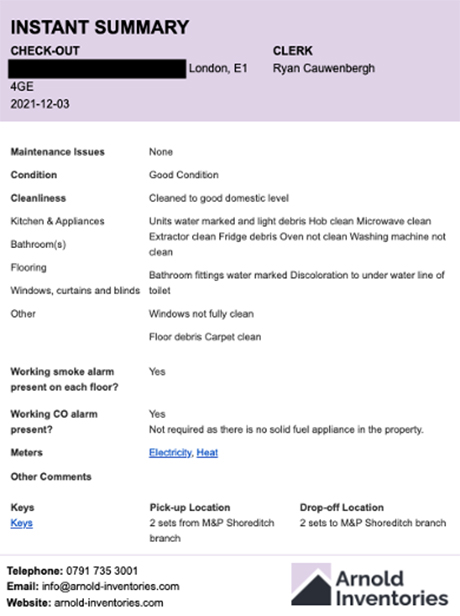There can be some confusion when it comes to who needs to pay any unpaid utility bills for rental properties — does the responsibility lie with the landlord or the tenant?
Unpaid Bills: Who is Legally Responsible for Utility Bills?
The short answer to this question is whoever’s name is on the utility bills. But it’s not always as simple as this, such as in situations where tenants refuse to pay for bills they are responsible for.
Whether or not your tenant will need to pay unpaid bills goes back to the Tenancy Agreement you should have in place from the start of their tenancy. This will outline whether the bills are to be paid separately in the tenant’s name, or whether they will be included in the cost of the rent, and kept in the landlord’s name.
Bills Registered in the Tenant’s Name
When utilities are registered in the tenant’s name, they are responsible for paying every bill whilst they are living there (so from the date they move in, to the date they move out), and whilst their name is on the bills.
Bills Registered in the Landlord’s Name
In cases where bills are registered in the landlord’s name, even though your tenants will be paying you for the gas, electric, and water used, the responsibility for paying lies with the landlord.
This is a riskier way of doing things for landlords, but can be less complicated than changing names on bills whenever a new tenant moves in, particularly for short lets.

Unpaid Energy Bills: Advice for Landlords
Is a Landlord Responsible if a Tenant Doesn’t Pay Utility Bills?
In most cases, landlords are not responsible for their tenants’ utility bills. As long as the tenant’s name is on the bills, the responsibility to pay lies with them.
This means that utility companies should chase the tenants directly for any payments not made while the bills were registered to their name, rather than going through the landlord.
Steps to Take to Protect Yourself
Don’t just assume that responsibility won’t lie with you as a landlord to pay unpaid bills, make sure you take all the steps you can to protect yourself. This includes:
1. Set out a clear Tenancy Agreement that states who is responsible for paying utility bills, and ensure this is agreed upon before and signed before the tenant moves in. Keep a signed copy of this agreement.
2. Notifying your local council of a change in tenancy, including providing them with updated names and contact details for your new tenants.
3. Although your tenant should do this anyway, we recommend contacting the utility suppliers to ensure bills are registered in your new tenant’s name (if they should be, according to the tenancy agreement).
4. Take meter readings at the start and end of each tenancy, to ensure that past and future tenants are only paying for what they have used. This should be done as part of your check-in report, check out report, and during any landlord inspections.
Moving a new tenant into your property? Protect your investments with a detailed inventory check-in report from Arnold Inventories.
What Bills are Tenants Responsible For?
Bills that you will definitely be responsible for as a tenant are Council Tax, Broadband, TV Licence, and Contents Insurance.
Your Tenancy Agreement will state whether you are responsible for paying utility bills (gas, electric, and water) directly. You will either need to pay them directly, and they will be registered in your name, or you will need to pay them through your landlord, and they will be in their name. Whichever method your landlord puts forward in the Tenancy Agreement, make sure you are happy with it before signing.
Unpaid Utility Bills: Advice for Current/Past Tenants
Notifying Suppliers of End of Tenancy
As a tenant, you must remember to notify utility companies that your tenancy is coming to an end, and give them a date. This means your name should be taken off on the day you move out, and any bills after that won’t be your responsibility.
Checking Meter Readings
Before you move out the property (if you haven’t already), you should take meter readings. This means you have proof of what you used during your tenancy, and should prevent any utilities from future tenants from being billed to you.
Paying Any Outstanding Bills
Before moving out, or as soon as possible after your tenancy ends, you should ensure that any outstanding bills are paid. By clearing any debt you owe to utility companies, you will prevent future disputes in regard to who needs to pay.
Unpaid Utility Bills: Advice for New Tenants
Do You Have to Pay a Bill That’s Not in Your Name?
If you get a bill through that is in the name of a previous tenant, you are not responsible for paying it. Don’t open any letters that aren’t addressed to you, instead contact the provider that sent the bill and tell them that the account holder no longer lives at your address.
Notifying Suppliers at the Start of Your Tenancy
As soon as possible after moving into a rental property, if the Tenancy Agreement states that you are responsible for paying bills directly, contact the utility providers. Give them your details and the date you moved in, so they can set the bills up in your name.
Checking Meter Readings
Your landlord should keep a record of meter readings, but it is advisable to also do this yourself on the day you move in and the day you move out. This will provide you with evidence of how much you have used, and prevent you from having to pay for any bills left from a previous tenancy.
What Happens if a Tenant Moves out Without Paying Their Utility Bills?
Whether done on purpose or accidentally, it is a common problem that tenants move out without paying their end of tenancy utility bills.
It is important to remember that utility bills are connected to the account holder(s), not the property itself. This means that the tenant is accountable for any unpaid bills if the account is in their name.
As a landlord, if you find yourself in this situation, you should contact the energy supplier to inform them that the account holder no longer lives in your property. They should then stop sending the bills to you, and will likely ask for a forwarding address for the tenant, if you have one.
Who is Responsible for Bills During Void Periods?
Void periods are the times between tenancies that the property is unoccupied. During void periods, the responsibility for paying bills usually falls on the landlord.
Landlords are typically responsible for utilities, council tax, and any other maintenance costs during void periods. It is important for landlords to budget for these expenses and be prepared to cover them in the event of vacancies.
Prevent Disputes with Thorough Check In Reports
When having a detailed check in report carried out through a professional company, meter readings will be included as part of the checks. So, not only will the condition of your property be documented, but you will also have evidence of who is responsible for unpaid utility bills, based on who was occupying the property when the gas, electric, and water was used.
Similarly, when a tenant leaves the property, getting a check-out report (otherwise known as an end of tenancy report) carried out, ensures meter readings are taken and documented again. This gives a record of how much was used at the time of the previous tenant moving out, meaning you and your next tenant can’t be blamed for any bills you aren’t responsible for. For reliable property management services, reach out to Arnold Inventories with your requirements, and we will be in touch to discuss how we can help you!




0 Comments
Leave A Comment